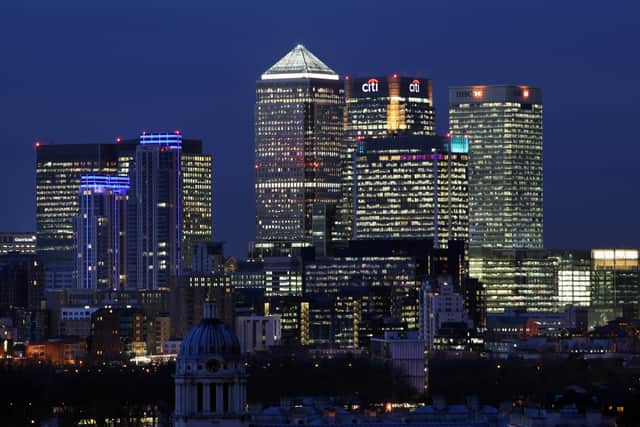Is a recession coming in 2022? Is UK heading for an economic downturn - what interest rate means for economy
and live on Freeview channel 276
The UK is in the midst of a cost-of-living crisis that has renewed fears that the country is headed for a recession.
Soaring inflation and spiralling energy and fuel costs have been hitting households hard.
Advertisement
Hide AdAdvertisement
Hide AdThe Bank of England has even raised interest rates by 0.5 percentage points to 2.25% - the highest rate in 14 years.
After the Chancellor’s mini-budget was announced on 23 September, the British Pound fell to its lowest rate against the Dollar, causing some mortgage lenders to pull their deals, leading to fears about a housing market crash.
So is a recession coming? Here’s everything you need to know about whether the UK is headed for a recession.


Is a recession coming in 2022?
Experts certainly believe that the UK is headed for a recession in 2022.
Advertisement
Hide AdAdvertisement
Hide AdIn September, the British Chamber of Commerce (BCC) stated it “expected the economy to plunge into recession before the end of 2022.”
Addressing their prediction Alex Veitch, Director of Policy at the British Chambers of Commerce said: “Our latest quarterly economic forecast will not be of any comfort to either consumers or businesses. The extreme inflationary pressures already present are only likely to increase as we head towards Christmas; with the UK economy already thought to be in recession.”
According to the Office for National Statistics (ONS) the Gross domestic product (GDP) saw a modest rise in July of 0.2% after it fell 0.5% in June.
However construction and production rates have both continued to fall.
What does the fall in GDP mean for the economy?
Advertisement
Hide AdAdvertisement
Hide AdThe cost of living crisis has been hitting the British public hard.
Prices for fuel and energy bills rose a staggering 54%, all whilst the new national insurance hike left workers with less money in their pockets.
The war in Ukraine has triggered soaring food costs and staggering petrol prices at the pumps in June.
Inflation has soared to 10.1%, with predictions it might hit 13%, and interest rates are at their highest for 14 years at 2.25%.
Advertisement
Hide AdAdvertisement
Hide AdChief economic adviser to the EY Item Club, Martin Beck gave a bleak overview of what is to come.
Beck said: “An already serious squeeze on households’ spending power will be negatively affected by the inflationary impact of global supply chain frictions and sterling’s recent weakness.”
What has the Bank of England said?
The Bank of England has predicted that inflation will reach 13% by the end of 2022 - the average target sits at just 2%.
In response to rising inflation interest rates have risen by 0.5 percentage points to 2.25% - the highest rate in 14 years.
Advertisement
Hide AdAdvertisement
Hide AdThere is growing concern for households in fixed rate mortgages, who may end up paying double when they renew their policies. This has led to fears that the UK may be headed towards a housing market crash.


What is a recession?
A recession is defined as when a country goes through a period of economic decline.
The UK’s wealth is calculated by their GDP, when this rate goes down, it causes the economy to shrink, with less wealth being generated.
If the GDP declines for two quarters in a row (six months), this is defined as a recession.
Comment Guidelines
National World encourages reader discussion on our stories. User feedback, insights and back-and-forth exchanges add a rich layer of context to reporting. Please review our Community Guidelines before commenting.
